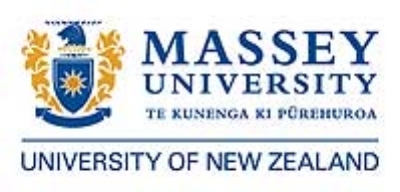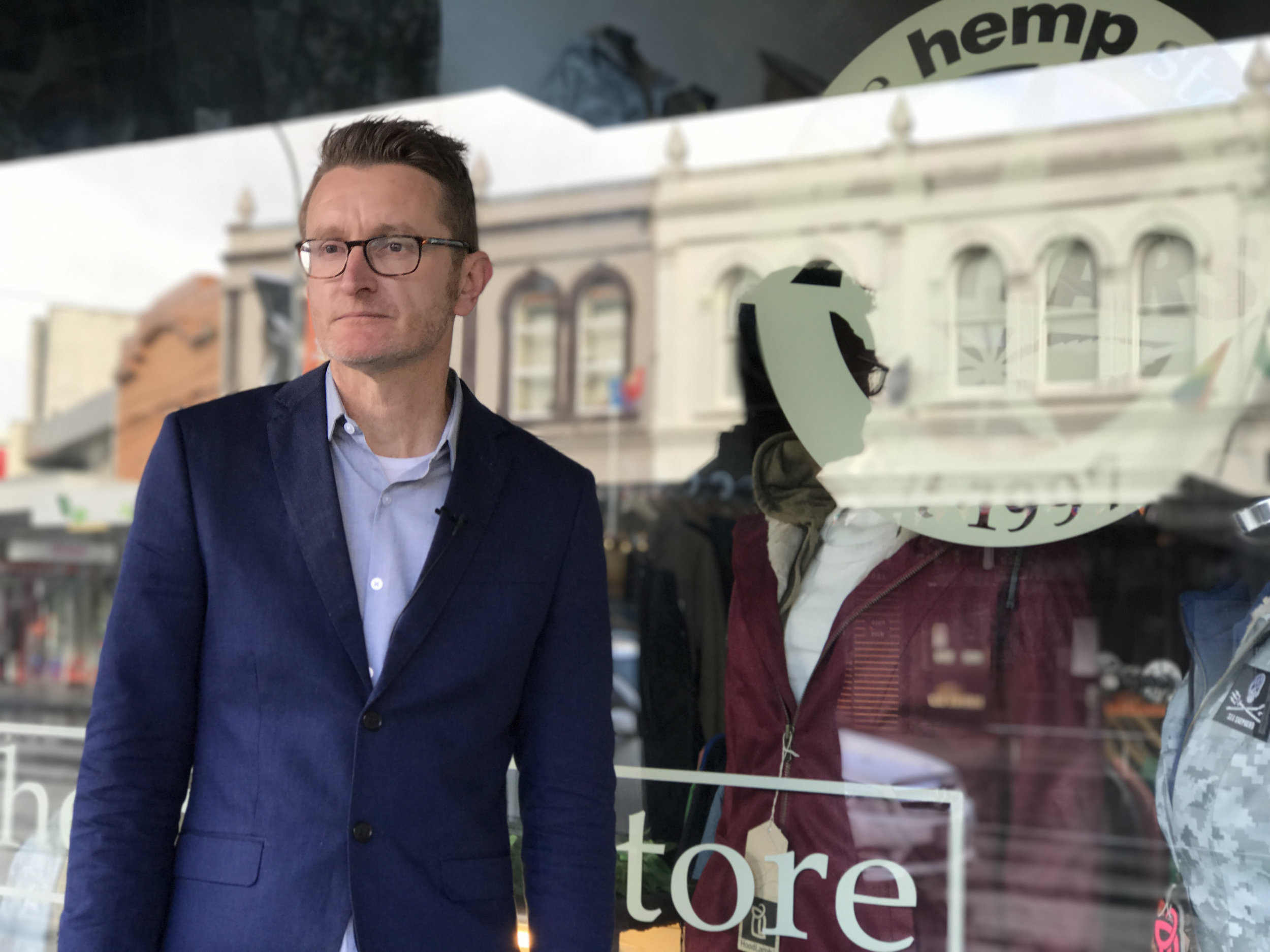Belinda Borell is the recipient of the Hohua Tutengaehe Fellowship funded by the Health Research Council of New Zealand. Belinda has a particular interest in rangatahi and identity and how this relates to wellbeing, and has developed expertise in the role societal structures and institutions play in producing and maintaining health inequities, particularly for the privileged members of our society. Her previous research and PhD examined these issues using qualitative methods and she will be looking to explore this further using a kaupapa Māori-based Q-sort approach developed in Whariki. This will provide her with an opportunity to extend knowledge and upskill in this methodology, which includes quantitative analyses.
Online alcohol and drug survey now live
The SHORE & Whāriki drug research team, led by Associate Professor Chris Wilkins, has launched a new study on alcohol and drug use throughout the country, which includes a national online survey. Levels of alcohol and drugs in wastewater will also be measured.
The online alcohol and drug survey is now live and can be self-completed from a smart phone, tablet or computer via this website: https://drugs.shore.ac.nz; over the phone on 0800 554 101; or face-to-face with an interviewer on request, by texting the word “research” to 0800 554 101.
The International Alcohol Control (IAC) study celebrated the launch of the Book of Abstracts of the forthcoming Special Issue of Drug and Alcohol Review at the recent Global Alcohol Policy Conference in Melbourne. The launch was funded by the International Development Research Centre, Canada, which has also funded open access to the Special Issue of the journal .
Professor Sally Casswell, as Chair of the Global Alcohol Policy Alliance, was co-host and member of the organizing committee for the Global Alcohol Policy Conference (GAPC17) held in Melbourne 5-7 October. Dr Taisia Huckle, Mr Steve Randerson, Marta Rychert and Thomas Graydon Guy, SHORE & Whariki Research Centre, College of Health attended the conference.
Professor Casswell organized a pre-conference symposium on 3 October – on alcohol and development where participants from low and middle income countries shared experience in research and advocacy with a focus on the alcohol development issues.
A working meeting of the International Alcohol Control (IAC) study meeting was convened by Dr Taisia Huckle prior to the GAPC17 conference in Melbourne and Professor Charles Parry, Director: Alcohol, Tobacco and Other Drug Research Unit South African Medical Research Council is visiting for a week to discuss cross country IAC publications.
Associate Professor Chris Wilkins and Marta Rychert are the lead authors of a chapter on ‘Exploring innovative policy responses to NPS and ‘legal highs’ in New Zealand, Poland, Republic of Ireland and the UK’ in Novel Psychoactive Substances: Policy, Economics and Drug Regulation, published recently by Springer. Click here for more information.
Associate Professor Chris Wilkins will be a presenter in Part 2 of the webinar series Monitoring Drug Trends in Australasia hosted by the National Drug Early Warning System (NDEWS) at the Center for Substance Abuse Research (CESAR), University of Maryland, College Park (UMCP). The webinar titled Examining Global Drug Early Warning Systems will take place on Wednesday, September 27, 2017 at 10.00am – 11.30am (NZ time). The webinars are designed to explore current practices utilized by existing international drug early warning systems (DEWS) with the aim of developing guidance to support countries interested in establishing new DEWS or enhancing existing programs.
The webinar will last approximately 90 minutes.
In order to participate, you must have an internet connection, a web browser, and speakers (to listen).
To ensure your space, please register at:
https://zoom.us/webinar/register/WN_gXnhlDvMRQag6qX165te5Q
Emerald McPhee presented a seminar titled Q-Methodology and Kaupapa Maori Research at the University of Auckland on the 4 September 2017.
Q methodology is a sensible fit for Kaupapa Māori research as it centres on the perspectives and subjectivities of participants through a bottom-up approach. Combined together the methodology opens up the possibility for an exploratory approach to research which seeks to understand complexities rather than being hypothesis driven. A Kaupapa Māori approach and Q methodology share the similarity of working across a variety of disciplines and being adaptable to and interested in different epistemologies. Baring its roots in psychological assessment of the individual, Q-methodology in health research brings forth the potential to disrupt the traditional power differentials between researcher and participant while allowing space for clusters of viewpoints to be explored and contextualised. We draw on our study Maori Health Identities funded by the Health Research Council to explore Q-methodology and its potential within Kaupapa Māori research.
Emerald Muriwai McPhee is a researcher at Te Rōpū Whāriki in the College of Health at Massey University. Emerald has a Masters in Psychology and a background in indigenous and social psychologies focusing on Māori identity, psychological distress, resilience, smoking behaviour, alcohol consumption and exercise prescription.
Professor Karen Witten, Associate Director of the SHORE and Whariki Research Centre explains findings from the Kids in the City project to Mei Liu a traffic engineer visiting from Shanghai. Mei had read of the ground breaking New Zealand study in academic publications and could see its potential applicability in Shanghai where children's independent mobility is severely limited by car oriented urban planning and design. Mei is visiting SHORE for four weeks to gain further understanding of the research.
The latest Illicit Drug Monitoring System (IDMS) study report is now available. The IDMS study began in 2006. It is conducted by Massey University researchers at SHORE & Whariki and provides an annual snapshot of trends in illegal drug use and drug markets in New Zealand. See the media release on the Massey University News page - and download the report here.
Emerald Muriwai McPhee presents at the KBS alcohol symposium at Sheffield University, June 2017. Dr Taisia Huckle and Dr Martin Wall also presented.
Sally Casswell attended the World Health Assembly in Geneva May 2017, seen here being interviewed at the launch of the Bloomberg Partnership for Healthy Cities about the need for alcohol control to provide safe and inclusive cities.
How legalising cannabis can help society
SHORE and Whāriki's Associate Professor Chris Wilkins is calling for the adoption of a not-for-profit public health model for recreational cannabis, which would allow regulated cannabis products to be sold by philanthropic societies, in an approach similar to the Class 4 gambling regime which was introduced in 2003 to regulate“pokie” trusts in New Zealand. See the media release on the Massey University News page - or download the information bulletin here
Dr Chris Wilkins spoke with Radio NZ this morning about setting up a regulated Cannabis Industry. You can listen to the interview here.
Dr Chris Wilkins featured on The AM Show this morning discussing synthetic cannabinoids. Check out the tweets from The AM Show and Massey University.
SHORE & Whāriki staff had their annual picnic in the Auckland Domain on the 24th February. Despite a little bit of rain, a lot of fun was had including some giant jenga!
Professor Jane Mills, our new Pro Vice-Chancellor, College of Health, Massey University visited SHORE & Whariki offices yesterday morning and was informally introduced to staff. Today, some SHORE & Whariki staff attended a formal powhiri welcome at the Albany campus to welcome Professor Jane Mills to Massey University, and Dr Charlotte Severne, our new Assistant Vice-Chancellor, Maori and Pasifika to the Albany Campus.
Release of NZ-ADUM 2015
The New Zealand Police havereleased the latest New Zealand Arrestee Drug Use Monitoring Programme Report (NZ-ADUM) which is produced by SHORE staff members.
The NZ-ADUM 2015 final report is now available for download
Nui Te Kōrero: Rewriting National Narratives 2016
Recently researchers from Te Rōpū Whāriki went down to Wellington to present at the Māori Association of Social Science (MASS) conference (9th-11th November, 2016). The theme of the conference was Nui Te Kōrero: Rewriting National Narratives and the team presented analyses from the Wairua, Affect and National Days project. Whāriki ran a workshop on A wairua approach to research lead by Helen Moewaka Barnes alongside Angela Moewaka Barnes, Emerald Muriwai, Te Raina Gunn and Jade Le Grice. As well as this, Emerald presented on Privilege and denial of the nation’s foundation and discussed privilege and complexities associated with Waitangi Day for Māori and non-Māori. The conference informs some of the upcoming outputs which will be updated on Whāriki’s project website over the next few months: http://www.wairuaaffectnationaldays.info/
Emerald from Te Rōpū Whāriki presenting Privilege and denial of the nation’s foundation









